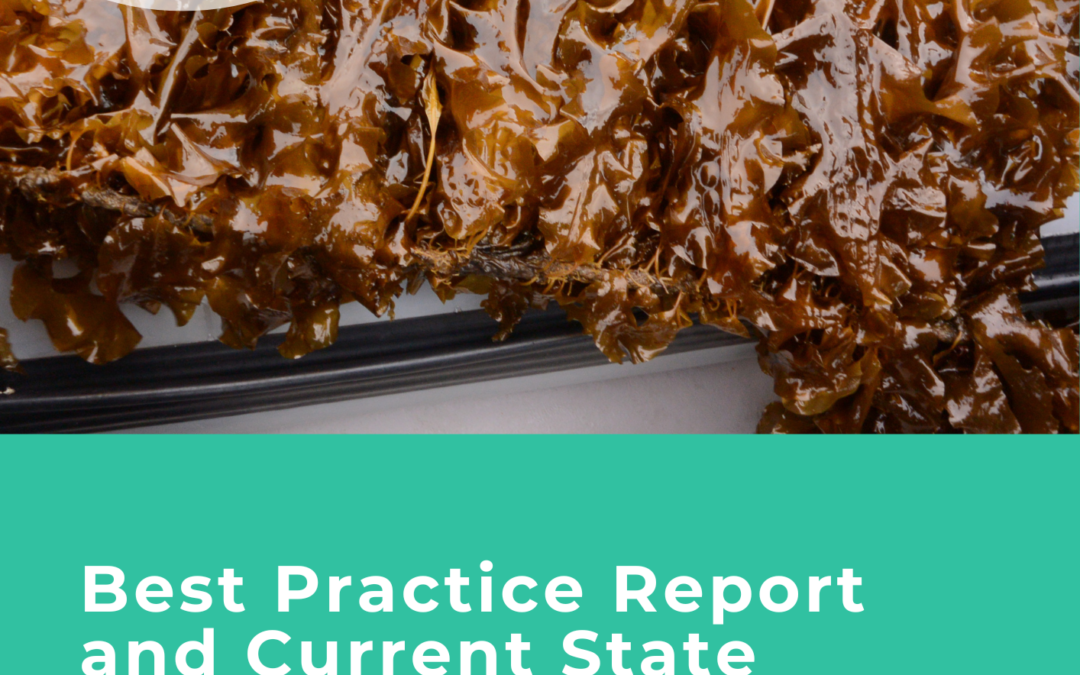After conducting interviews with people working for organisations that operate across the seaweed value chain in the UK and Netherlands over the summer, we are very proud to be publishing the Best Practice Report and Current State Analysis of the Norfolk and UK Seaweed Sector in 2023.
The report’s purpose was to review the current state of the UK seaweed sector and identify best practices adopted in other UK areas where the seaweed sector is more developed, as well as in the Dutch seaweed industry. The report also aimed to identify how best to build a seaweed economy with sustainable and socially responsible supply chains in Norfolk. The Main Takeaways from the report as well as the Executive Summary, can be found below.

Executive Summary
This report addresses challenges and opportunities currently seen in the UK seaweed sector, focusing on the opportunity that Norfolk has to build a seaweed industry. The present prolonged and unclear licensing process is one of the barriers discussed that is hindering industry growth and investment. Through the interviews conducted for this study, the central regulatory bodies responsible for the seaweed sector have proposed that streamlining applications and enhancing stakeholder engagement could improve efficiency.
The UK seaweed farming landscape is also addressed in the report, where the scaling-up of the UK total biomass production will be vital to establishing a competitive and sustainable industry. To achieve this, collaboration is advocated, urging a unified platform for communication, knowledge sharing, and partnerships within and beyond the sector. Learning from the Netherlands and other global successes will also be essential to ensure fast and sustainable scaling-up. The space constraints in UK waters necessitate solutions around co-existence and exploring co-location possibilities with wind farms, which several companies are investigating. Challenges include insurance risks and operational logistics, highlighting the need for partnerships and clear government policies for successful co-use projects. For seaweed sector product and service development, targeted research is required for industry progress.
The report concludes by emphasising the key factors that can support the acceleration of a seaweed industry in Norfolk. It highlights the importance of building local capabilities and supply chains and fostering solid relationships through long-term contracts. In Norfolk, seaweed biomass presents opportunities in agriculture, bioplastics, and food product development, with the potential to ease environmental pressures from pollution and coastal erosion. Collaboration with the fishing industry and co-location with energy companies could create additional local employment and access prospects. Establishing a biorefinery and a seaweed nursery locally could significantly boost production and awareness. This should therefore be a key focus point alongside supporting seaweed cultivators that want to farm in the area to accelerate a seaweed industry in Norfolk.
This report was conducted as part of the Seaweed in East Anglia (SEA) project. The project is delivered by Hethel Innovation in collaboration with The Centre for Environment, Fisheries and Aquaculture Science (Cefas) and University of East Anglia (UEA).

A Special Thanks
A very special thanks to the organisations that allowed me to interview them for this study. Without you, this report would not have been possible to write. Thank you again for your time and engagement. It is much appreciated. Many thanks also to the fellow SEA project partners, Cefas and UEA, for their invaluable support in getting this report to the final stages.
Want to learn more about seaweed? Keep an eye out on our SEA project webpage for further blogs and project updates, and check out the newly added links at the bottom of our page!


